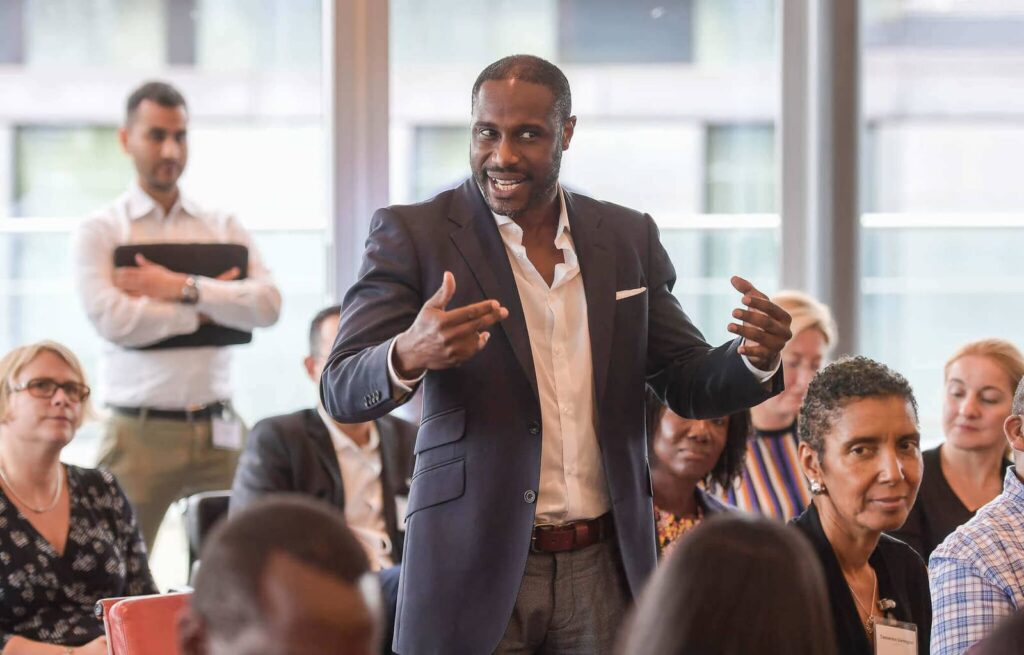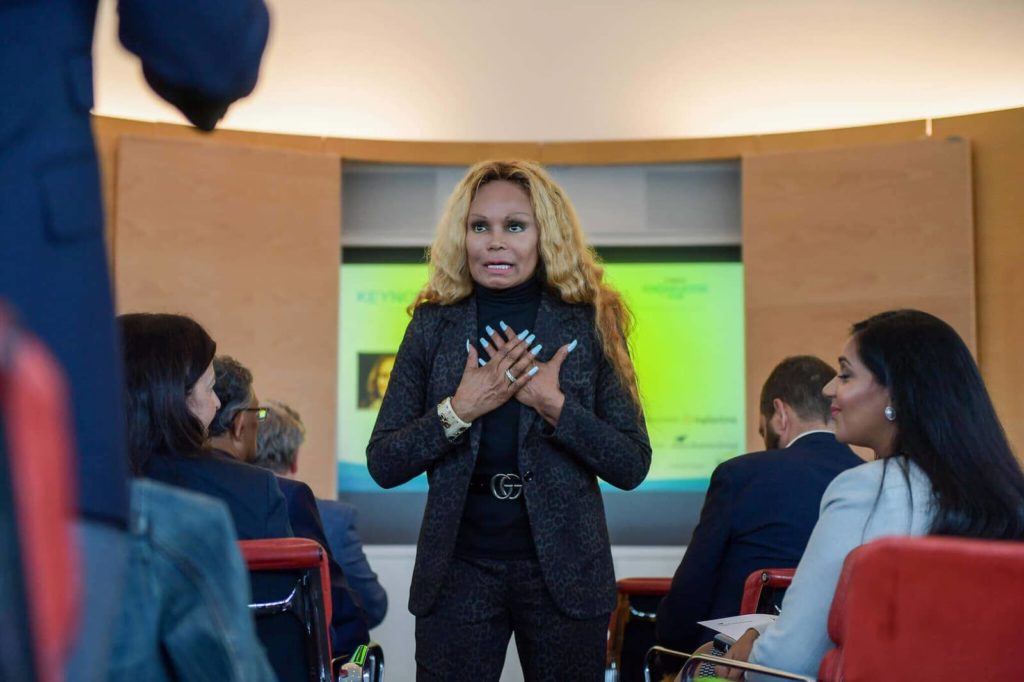The final workshop of our Building Business Leader of the Future (BBLF) programme engaged with the different styles of leadership. The series of workshops covered in this programme aims to provide a blueprint for business leaders to enhance their leadership skills and equip the first cohort that attended the BBLF programme with the right tools to be successful leaders.
Business leadership at the beginning of the 21st century looks very different compared to previous decades. Technological advances and the increase of the knowledge economy have influenced a change in relationship between leaders and the people they lead.
The modern economy, particularly in the West, has seen the rise of the knowledge worker. These are people with expertise in certain areas and as a result, have more options open to them and tend to be very mobile. Thus being a leader involves being more engaged with those you want to lead.
Therefore, modern leadership is about having meaningful conversations and influencing people to work toward a common goal
However, Leadership should not be confused with management. The former is about getting the best out to people and the latter is about getting the best out of business.

MSDUK 2019 International Day at Marsh & McLennan Companies in London
Although there are different forms of leadership the fundamentals have remained the same and these are rallying people to work towards a common goal. There are two distinct leadership approaches as argued by the Ohio studies.
One is Structure and the other is Consideration. Structure focuses on tasks, goals and performance whereas Consideration focuses on employees. Leaders that fall under this style tend to spend most of their time focusing on employees that are less productive.
Transactional and transformational leadership are two distinct styles of leadership that differ in their approach in influencing people to achieve ascribed goals.
Transactional leadership focuses on an exchange of resources between leaders and employees, i.e. pay for performance, salary bonuses or promotions. This style of leadership works within an already defined framework and does not seek to change the status quo or organisational culture as it already exists.
Transformational leadership on the other hand focuses on creating an emotional link between leaders and followers which leads to an increase of employee motivation and morale. This style of leadership has an emphasises norms and values and makes them the focal point. There are four key components that are a feature of transformational leadership:
Both these styles of leadership have their benefits and short falls however, they should not be perceived as operating distinctly from one another. Successful leaders will adopt both styles to achieve their goals. For example, transformational leaders might inspire their followers to adhere to their values and follow their vision however, they are bound to encounter resistance and, in this situation a transactional style might work well to get people on board.

MSDUK 2019 International Day at Marsh & McLennan Companies in London
The notion of situational leadership advocates that there is no best style of leadership. Successful leaders tend to use different styles according to the situation and the environment they operate in. The essence of situational leadership is that it argues that:
This leadership style puts a premium on adaptability and considering employee needs. The essential competences of situational leadership are:
The essence of this module is that no single leadership style can be advocated. The context, needs of employees and organisational goals are all influencing factors in determining leadership approach.
Therefore, adaptability is vital for effective leadership.
T. +44 (0) 116 2532520
A. Studio 5, Phoenix Square,
3 Burton Street, Leicester LE1 1TB UK
Navigate
Newsletter sign-up
Get the latest MSDUK updates
delivered straight to your inbox.
Get the latest MSDUK updates delivered straight to your inbox.
© 2025 MSDUK. All rights reserved.
Desinged by
Jensen & Jensen